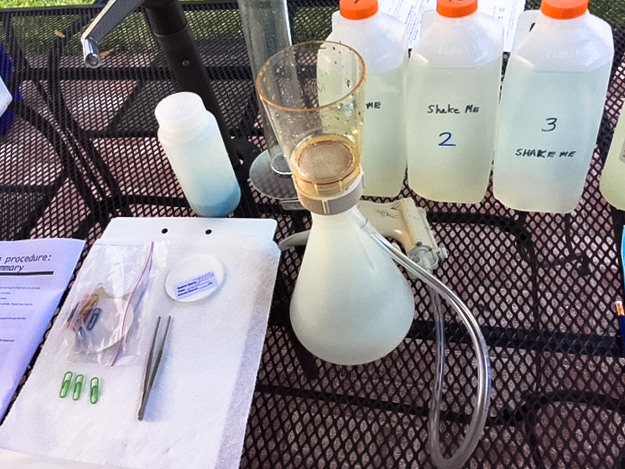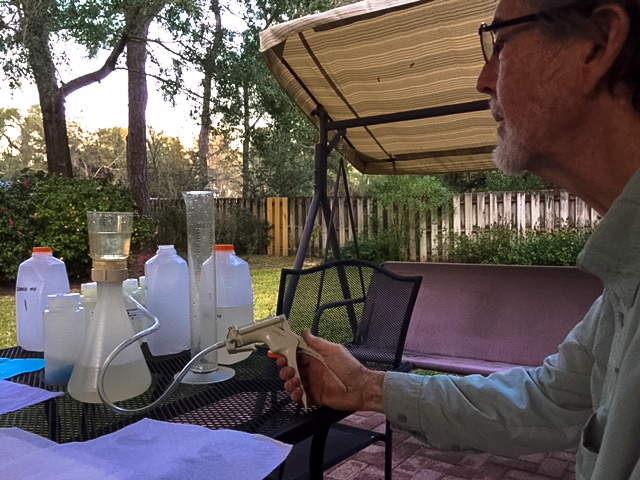
Today is World Oceans Day (June 8th, 2020) and in the spirit of the day I want to recognize two very ocean-oriented volunteers: Janis and Dennis Daly. The Dalys volunteer for many coastal volunteer programs, including Florida Horseshoe Crab Watch and shoreline restoration. They hold several Florida Master Naturalist Program certifications, including Coastal Systems, Coastal Shoreline Restoration, and Habitat Evaluation. Recently, they have taken leadership of a new wing of the Nature Coast Water Watch program in Horseshoe Beach. Horseshoe Beach is just north of the Suwannee River and is an important recreational area for fishing and scalloping, among other things.
Watching our Waters

The goal of Nature Coast Water Watch is to provide actionable water quality monitoring information in data-poor regions. The Horseshoe Beach estuarine area is one of those data-poor regions. Water quality monitoring is important because it helps the Florida Department of Environmental Protection (FDEP) ensure our waterways are staying clean. The FDEP uses numeric nutrient criteria to make sure that water bodies in the state are meeting targets. Long-term data is the most valuable kind, because it provides information about trends in water quality.
Thanks to the Dalys, the Horseshoe Beach estuary is getting the attention it needs! They are collecting monthly samples that provide data on nutrient (nitrogen and phosphorus) levels, algal concentration, and clarity of the water. They started in January, and now they already have several months of data to show for their efforts!

Want to get involved?
If you or your organization is interested in getting involved, contact me at savanna.barry @ ufl.edu to find out how! The estuarine zone off of Econfina is a priority area, and we also have a volunteer program in the St. Marks estuary with open spots.

Volunteers must have a boat and commit to at least two years of sampling. Ideally, samples are taken monthly but bi-monthly or quarterly schedules are also possible.

 0
0
